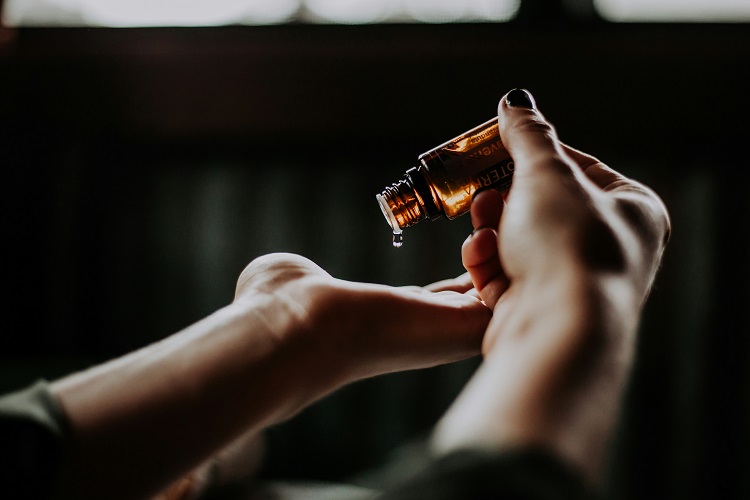Managing herpes virus infections, whether oral or genital, presents challenges despite the standard prescription of antiviral medications. Many individuals seek alternative, natural treatments to supplement conventional therapies. We delve into various natural remedies, dietary adjustments, lifestyle changes, and holistic approaches aimed at managing herpes symptoms and promoting overall well-being. From exploring herbal supplements to adopting stress management techniques, discover evidence-based strategies for addressing the herpes virus naturally.
By understanding these approaches, individuals can empower themselves to take control of their health and find relief from the symptoms associated with herpes outbreak. Let’s explore the natural options available to support individuals with herpes virus infections.
Understanding Herpes Virus: Types and Symptoms
Herpes viruses, comprising herpes simplex virus type 1 (HSV-1) and type 2 (HSV-2), are highly contagious and incurable. HSV-1 typically manifests as oral herpes, commonly known as cold sores, while HSV-2 predominantly results in genital herpes. However, both types can potentially infect either area, leading to oral or genital lesions interchangeably. Symptoms often include the appearance of painful sores, accompanied by sensations of itching, tingling, and, in some cases, flu-like symptoms during outbreaks.
Read more: The Latest Research Says Herpes Virus Goes On And Off.
Understanding the lifecycle and transmission modes of the herpes virus is crucial for effectively managing outbreaks and reducing transmission risks. The virus can be transmitted through direct contact with active lesions and through asymptomatic shedding, where the virus is present on skin’sin’s surface without visible symptoms. Additionally, herpes can be transmitted through oral, genital, and anal intercourse, making safe sex practices essential for prevention.
By comprehensively understanding the nature of the herpes virus, individuals can take proactive measures to manage outbreaks, reduce transmission risks, and seek appropriate medical care when needed. Through education and awareness, individuals can empower themselves to make informed decisions regarding their sexual health and well-being.
Conventional Treatment Options
Antiviral medications like acyclovir, valacyclovir, and famciclovir are the primary treatment for herpes virus infections. These drugs work by inhibiting the virus’s replication, thereby reducing the severity and duration of outbreaks. They also help suppress viral shedding, lowering the risk of transmission to others.
Acyclovir, one of the earliest antiviral drugs, is commonly prescribed for HSV-1 and HSV-2 infections. It is available in oral, topical, and intravenous forms, making it versatile for various stages of outbreaks. Valacyclovir, a prodrug of acyclovir, offers the convenience of fewer daily doses due to its enhanced absorption in the digestive tract. Famciclovir, another effective option, is often used for its ability to shorten the healing time of sores and reduce the pain associated with outbreaks.
While these antiviral medications effectively manage herpes symptoms, they do not cure the infection or prevent future outbreaks. The virus remains dormant in the body and can reactivate under certain conditions, such as stress, illness, or weakened immunity.
Despite their benefits, antiviral drugs may cause side effects, including headaches, nausea, and, in some cases, more severe reactions such as kidney issues or allergic responses. Moreover, long-term use of these medications can lead to the development of drug-resistant strains of the virus, making them less effective over time.
Due to these limitations, many individuals seek natural treatments to complement conventional therapy and improve their overall well-being. By integrating natural remedies, dietary adjustments, and lifestyle changes, individuals can support their immune system and potentially reduce the frequency and severity of herpes outbreaks. This holistic approach allows for a more comprehensive management strategy, addressing both the physical and emotional aspects of living with herpes.
Herbal Remedies for Herpes
Numerous herbs have been studied for their potential antiviral and immune-modulating properties against herpes viruses. These natural remedies can offer supportive treatment alongside conventional therapies. While herbal remedies should be used with caution and ideally under the guidance of a healthcare professional, they can play a significant role in managing herpes symptoms and improving overall well-being.
1. Lemon Balm (Melissa officinalis):
Lemon balm is one of the most researched herbs for herpes treatment. It contains compounds such as rosmarinic acid, caffeic acid, and eugenol that have antiviral properties. Studies suggest that topical application of lemon balm can reduce the frequency, duration, and severity of herpes outbreaks. Its soothing properties also help alleviate itching and discomfort associated with lesions.
2. Echinacea:
Echinacea is widely known for its immune-boosting properties. It stimulates the body’s immune response, potentially reducing the frequency and severity of herpes outbreaks. Echinacea extracts are available in various forms, including teas, tinctures, and capsules. However, prolonged use of echinacea is not recommended, as it may lead to immune system overstimulation.
3. Licorice Root (Glycyrrhiza glabra):
Licorice root contains glycyrrhizin, which exhibits strong antiviral properties against herpes viruses. It can help inhibit viral replication and soothe inflammation. Liquorice root can be consumed as a tea extract or applied topically as a gel or cream. Using Licorice root cautiously is essential, as excessive intake can lead to side effects such as high blood pressure and imbalanced electrolytes.
Read more: Do’sDo’s and Don’tsn’ts of Post-Sex Behavior
4. Elderberry (Sambucus nigra):
Elderberry is another herb with potent antiviral properties. It is rich in flavonoids, which can help prevent the herpes virus from entering cells and replicating. Elderberry supplements are available as syrups, capsules, and tablets. In addition to its antiviral effects, elderberry supports the immune system and reduces inflammation.
5. Other Notable Herbs:
- Propolis: A resin-like substance bees produce, propolis has antiviral and anti-inflammatory properties. Topical propolis ointments can help heal herpes sores faster.
- John’shn’s Wort: Known for its antidepressant effects, John’shn’s Wort also has antiviral properties that may benefit herpes sufferers. However, it can interact with many medications, so professional guidance is essential.
Precautions and Considerations:
While herbal remedies offer promising benefits, it is crucial to approach them with caution. Some herbs can interact with conventional medications, leading to adverse effects. Always consult with a healthcare provider before starting any herbal treatment, especially if you are pregnant, nursing, or have underlying health conditions. Additionally, ensure you use high-quality, standardized herbal products to maximize efficacy and safety.
By incorporating these herbal remedies into a holistic treatment plan, individuals with herpes can potentially reduce the frequency and severity of outbreaks, supporting overall health and well-being.
Essential Oils for Herpes Relief
Essential oils are revered for their therapeutic properties, and they have gained popularity as natural remedies for various ailments, including herpes relief. Several essential oils possess potent antiviral, anti-inflammatory, and analgesic effects, making them valuable in alleviating herpes symptoms. When appropriately diluted and applied topically, these oils can promote healing, reduce pain, and soothe skin irritation associated with herpes lesions.
1. Tea Tree Oil:
Tea tree oil, derived from the leaves of the Melaleuca alternifolia tree, is renowned for its antimicrobial properties. It contains compounds like terpinen-4-ol that exhibit antiviral solid activity against herpes viruses. Tea tree oil can help reduce the severity and duration of herpes outbreaks when applied directly to the affected area. However, it should always be diluted with a carrier oil to prevent skin irritation.
2. Eucalyptus Oil:
Eucalyptus oil is well-known for its cooling and soothing effects on the skin. It contains cineole, a compound with antiviral properties that can inhibit the replication of herpes viruses. When diluted and applied topically, eucalyptus oil can relieve pain, itching, and inflammation associated with herpes lesions. Additionally, its refreshing aroma may help alleviate stress and promote relaxation.
3. Lavender Oil:
Lavender oil is prized for its calming and healing properties. It contains linalool and linalyl acetate, compounds with anti-inflammatory and analgesic effects that can help alleviate discomfort caused by herpes outbreaks. When applied to healing lesions, lavender oil promotes skin regeneration and may reduce scarring. Its soothing aroma can contribute to a sense of well-being and relaxation.
4. Other Beneficial Essential Oils:
- Peppermint Oil: Peppermint oil has cooling properties that relieve itching and burning sensations associated with herpes lesions. It also has antiviral properties that may help suppress viral activity.
- Lemon Balm Oil: Derived from the lemon balm plant, lemon balm oil contains compounds like citronellal and geranial that exhibit antiviral activity against herpes viruses. When applied topically, it can help reduce the frequency and severity of outbreaks.
- Oregano Oil: Oregano oil is rich in carvacrol, a potent antiviral compound that can inhibit the replication of herpes viruses. To avoid skin irritation, it should be diluted with a carrier oil before topical application.
Precautions and Considerations:
While essential oils offer natural relief for herpes symptoms, using them safely and responsibly is necessary. Always dilute essential oils with a suitable carrier oil before applying them to the skin to prevent irritation or adverse reactions. Additionally, perform a patch test before using any essential oil to check for sensitivity. Pregnant or nursing individuals and those with underlying health conditions should consult with a healthcare professional before using essential oils. By incorporating these natural remedies into a holistic herpes management plan, individuals can find relief from symptoms and support overall well-being.
Read more: Dispelling Herpes Transmission Rumors About Toilet Seats
Dietary Modifications and Nutritional Supplements
Dietary modifications and nutritional supplements support immune function and manage herpes outbreaks. Incorporating specific foods and supplements into your diet can help regulate the immune response, reduce viral replication, and alleviate herpes symptoms.
1. Foods Rich in Lysine:
Lysine is an essential amino acid that inhibits viral replication, including herpes viruses. Foods rich in lysine can help balance the ratio of lysine to arginine in the body, potentially reducing the frequency and severity of outbreaks. Excellent dietary sources of lysine include:
- Lean meats (chicken, turkey, beef)
- Fish (salmon, tuna, mackerel)
- Dairy products (yoghurt, cheese, milk)
- Legumes (beans, lentils, chickpeas)
- Eggs
- Quinoa
Incorporating lysine-rich foods into your diet while minimizing arginine-rich foods may help support herpes management.
2. Low-Arginine Foods:
Arginine is another amino acid that can stimulate the replication of herpes viruses and trigger outbreaks. While arginine is essential for various bodily functions, individuals with herpes may benefit from reducing their intake of arginine-rich foods during epidemics. Foods high in arginine include:
- Nuts (almonds, peanuts, walnuts)
- Seeds (sunflower seeds, sesame seeds)
- Chocolate
- Whole grains (oats, wheat, rice)
- Gelatin
- Protein supplements
Limiting the consumption of these foods during outbreaks may help prevent herpes virus activation and reduce the severity of symptoms.
3. Nutritional Supplements:
In addition to dietary modifications, specific vitamins, minerals, and antioxidants can support immune health and help manage herpes symptoms. Consider incorporating the following supplements into your daily regimen:
- Vitamin C: Vitamin C is a powerful antioxidant that supports immune function and helps reduce the duration and severity of herpes outbreaks. Citrus fruits, strawberries, kiwi, and bell peppers are excellent dietary sources of vitamin C.
- Vitamin D: Vitamin D plays a crucial role in immune regulation and may help prevent recurrent herpes outbreaks. Sunlight exposure, fatty fish (salmon, mackerel, sardines), fortified dairy products, and supplements can help maintain adequate vitamin D levels.
- Zinc: Zinc is involved in various immune functions and may help reduce the frequency and severity of herpes outbreaks. Dietary sources of zinc include meat, shellfish, legumes, nuts, seeds, and whole grains.
- Lysine Supplements: Lysine supplements can help boost lysine levels in the body, potentially inhibiting viral replication and reducing the frequency of herpes outbreaIt’sIt’s essential to consult with a healthcare professional before starting lysine supplementation to determine the appropriate dosage.




